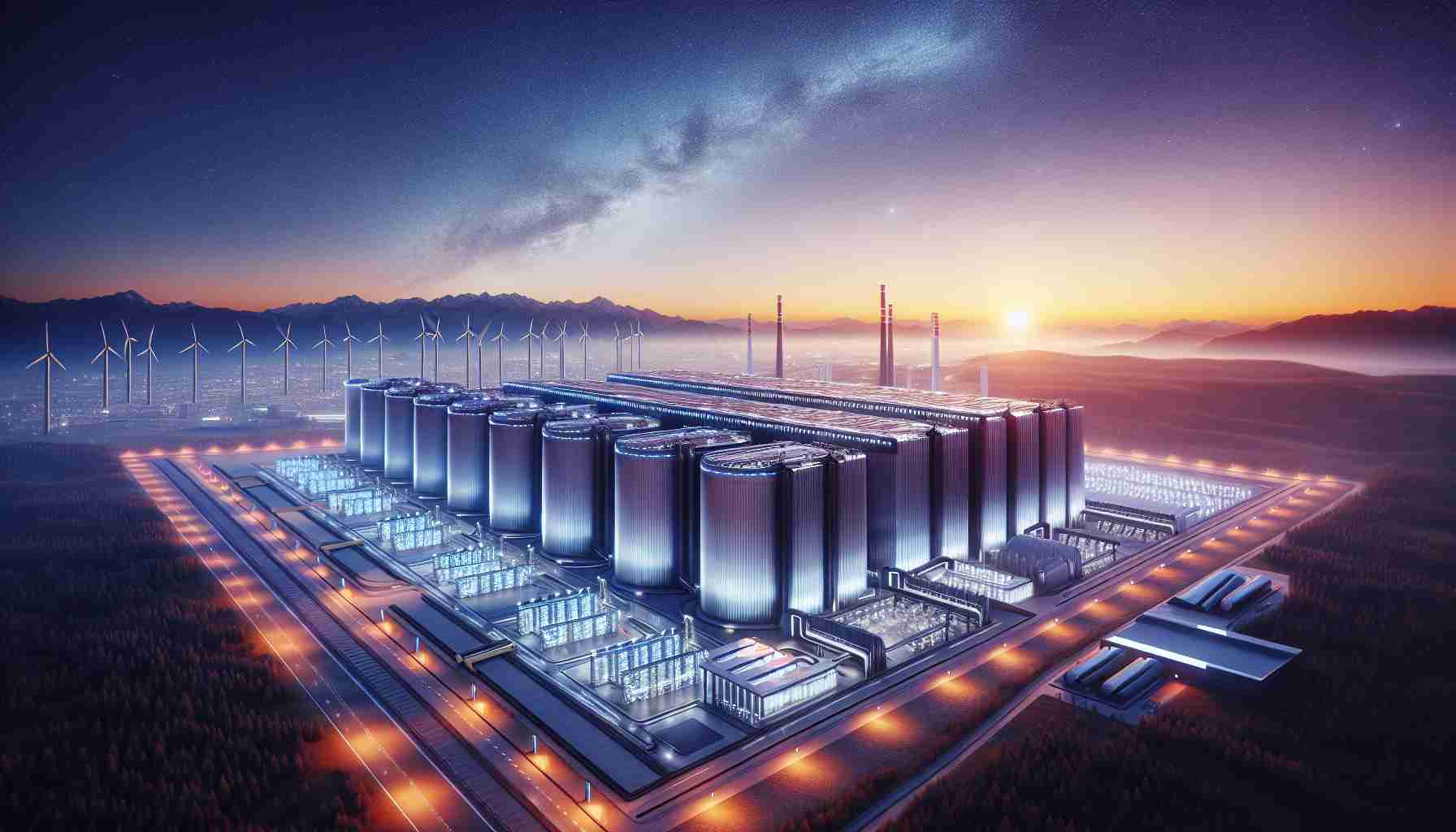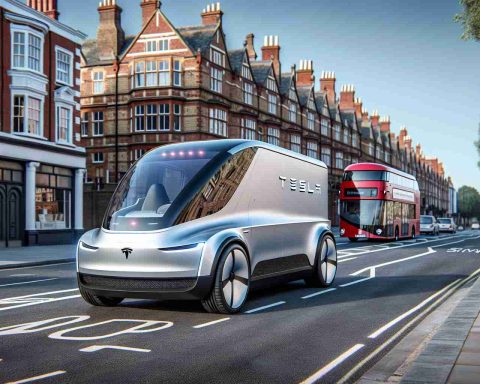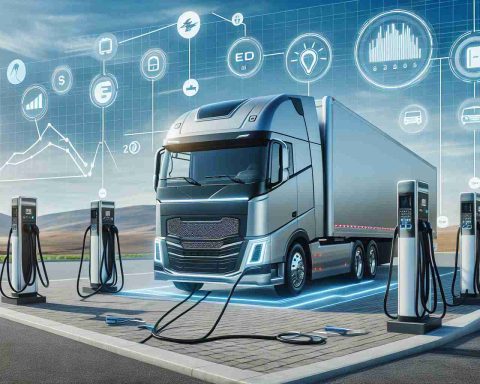Tesla Unveils Ambitious Energy Storage Initiative in Belgium
Tesla is making waves by partnering with Energy Solutions Group (ESG) to launch a significant energy storage project in Belgium, signaling a commitment to clean energy solutions worldwide. The initiative, featuring the deployment of Tesla Megapacks, will create a robust battery energy storage system (BESS) in Harmignies, a site that was formerly home to a cement factory.
With an estimated budget of 85 million euros (about $87.4 million), this project aims to harness 75 MW of power and store 300MWh of energy. The development is projected to wrap up by the end of this year and is financially backed by a governmental loan alongside bank credits from KBC, utilizing operational fees from electricity operator Elia to navigate energy supply and demand effectively.
This announcement comes hot on the heels of Belgium’s activation of its largest battery system in Wallonia, which employed 40 Tesla Megapacks to achieve a 50MW/100MWh capacity. That project is being run by Corsica Sole, following construction by a Mitsubishi subsidiary.
As Tesla ramps up Megapack production at its facilities in Lathrop, California, and a new site in Shanghai, China, the company is poised to meet the growing global demand for innovative energy solutions as it aims for an annual production target of 10,000 units.
Broader Implications of Tesla’s Energy Storage Initiative
Tesla’s commitment to establishing a significant energy storage system in Belgium reflects broader trends in the global energy landscape. The project’s implications resonate beyond local boundaries, potentially influencing societal shifts towards renewable energy adoption and reshaping cultural narratives around sustainability. As countries grapple with climate change, initiatives like Tesla’s can foster a culture of environmental responsibility, encouraging both citizens and businesses to prioritize clean energy solutions.
From an economic standpoint, this initiative underscores a rapidly evolving energy market in which battery storage systems play a crucial role. As countries push for emissions reduction, the demand for robust energy storage solutions is expected to surge. Reports indicate that the global battery energy storage market could reach $20 billion by 2029, driven largely by renewable energy integration. Tesla’s initiative not only places the company at the forefront of this market but also signals potential job creation in engineering and manufacturing sectors tied to renewable technologies.
Environmentally, the transition to comprehensive battery storage systems like the Megapack can significantly reduce reliance on fossil fuels, lowering greenhouse gas emissions. Moreover, as cities and industries increasingly face the ramifications of climate change—rising sea levels, extreme weather events—the shift to sustainable energy infrastructures could be pivotal.
Looking ahead, this project may signal a nascent trend towards decentralized energy solutions, as localities invest in energy independence through storage technologies, making communities less susceptible to fluctuations in traditional energy supplies. The long-term significance of these initiatives could redefine not only energy markets but also social frameworks around energy consumption and sustainability initiatives on a global scale.
Tesla’s Game-Changing Energy Storage Initiative: What You Need to Know
Tesla Unveils Ambitious Energy Storage Initiative in Belgium
Tesla is making bold strides in the energy sector with a significant energy storage project in Belgium, achieved through a partnership with Energy Solutions Group (ESG). This venture, which features the deployment of Tesla Megapacks, represents the company’s commitment to advancing clean energy technologies worldwide. Located in Harmignies, the project will transform a former cement factory site into a cutting-edge battery energy storage system (BESS).
Key Features of the Energy Storage Project
– Capacity: The project is designed to harness a power output of 75 MW, while the energy storage capacity reaches 300 MWh. This substantial capacity aims to bolster Belgium’s renewable energy efforts.
– Budget: With an estimated project cost of 85 million euros (approximately $87.4 million), it signifies a significant investment in renewable infrastructure.
– Funding: The initiative is financially supported by a governmental loan and bank credits from KBC, leveraging operational fees from electricity operator Elia for managing energy supply and demand.
Context and Importance
This initiative follows Belgium’s activation of its largest battery system in Wallonia. That system, enabled by 40 Tesla Megapacks, achieved a 50 MW/100 MWh capacity and is operated by Corsica Sole, marking a significant step in energy storage capabilities in the region.
Market Trends
Tesla is ramping up its Megapack production capacity to keep pace with increasing global demand for energy solutions. The company’s facilities in Lathrop, California, and a new site in Shanghai, China, are gearing up to meet an ambitious annual production target of 10,000 units. This aligns with trends predicting substantial growth in the battery storage market, which is projected to surpass $11.6 billion by 2027, with increasing investments in renewable energy driving demand.
Pros and Cons of Tesla’s Megapacks
Pros:
– High energy storage capacity, facilitating better energy management.
– Supports transition towards renewable energy sources.
– Quick deployment, enhancing responsiveness to energy demands.
Cons:
– High initial investment costs may deter smaller energy providers.
– Dependency on government loans can pose financial risks if policies change.
Use Cases
1. Grid Balancing: The Megapack system aids in stabilizing the energy grid by storing excess renewable energy and distributing it during peak demand.
2. Emergency Backup: It provides reliable backup power during outages, ensuring energy security.
3. Integration with Renewables: Megapacks can support solar and wind integration, creating a more sustainable energy landscape.
Predictions and Future Innovations
Experts anticipate that the global battery storage market will continue to expand as more countries commit to reducing carbon emissions. Innovations in battery technology, such as increased energy density and reduced costs, could further facilitate the adoption of projects like the one in Belgium, making energy storage solutions more accessible and efficient.
Conclusion
Tesla’s energy storage initiative in Belgium represents a crucial step towards sustainable energy management and showcases the potential of large-scale battery systems. As the company continues to innovate and expand its production, it paves the way for a cleaner, more resilient energy future.
For more information on Tesla’s initiatives, visit Tesla’s official site.


















